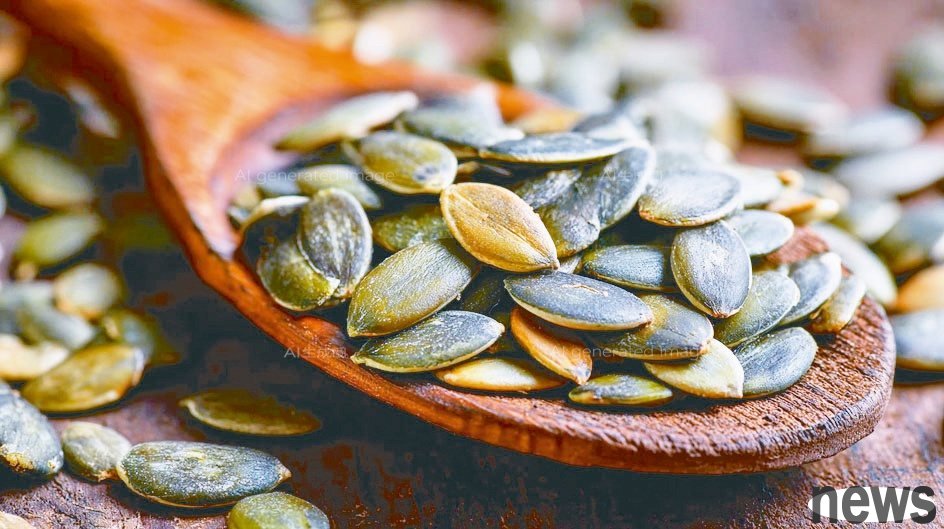Pumpkin seeds are rich in antioxidants, dietary fiber, high-quality fats, magnesium and protein. They are plant-based ingredients with extremely high nutrient density. Recent studies have shown that moderate consumption of pumpkin seeds can not only...

Pumpkin seeds are rich in antioxidants, dietary fiber, high-quality fats, magnesium and protein. They are plant-based ingredients with extremely high nutrient density. Recent studies have shown that moderate consumption of pumpkin seeds can not only help you fall asleep, but can also support multiple body functions and have potential benefits for cardiovascular, bone and male reproductive health.
1. Maintain the operation of multiple body functionsPumpkin seeds are an excellent source of magnesium. Magnesium participates in more than 300 physiological reactions in the body, including: stabilizing heart rhythm, maintaining nerve and muscle function, helping blood sugar metabolism, energy production, strengthening bones and the immune system.
Insufficient magnesium intake can easily lead to muscle cramps, fatigue, sleep disorders and irregular heartbeats. Appropriate supplementation of pumpkin seeds can help maintain overall metabolic efficiency and stabilize circadian rhythm.
2. Reduce the risk of cardiovascular diseaseEach ounce (about 28 grams) of pumpkin seeds has a higher fat content than carbohydrates and proteins. Most of them are monounsaturated fats and polyunsaturated fats, which can help reduce low-density cholesterol (LDL, bad cholesterol), thereby reducing the risk of arteriosclerosis, stroke and heart disease.
In addition, pumpkin seeds provide approximately 1.8 grams of dietary fiber per ounce. The soluble fiber contained in pumpkin seeds can help regulate blood lipids and cholesterol and is an important element of a heart-protecting diet.
3. Improve male fertilityStudies have pointed out that the zinc in pumpkin seeds can improve sperm quality and sexual function. Zinc deficiency has been linked to reduced sperm count and abnormal maturation, and each ounce of pumpkin seeds provides about 2.17 milligrams of zinc, which is about one-fifth of the recommended daily intake.
Some studies have also found that supplementing pumpkin seed extract may improve male ejaculation delay and sexual stimulation response, but more clinical evidence is still needed to support it.
4. May reduce the risk of breast cancerPumpkin seeds contain phytoestrogens, which are natural compounds similar in structure to estrogen. Some studies have found that consuming foods containing phytoestrogens can help reduce the risk of breast cancer. However, the current relevant research results are still inconsistent and require further verification.
5. Improve sleep qualityPumpkin seeds are rich in tryptophan, containing about 576 mg per 100 grams. This is an amino acid that promotes the production of serotonin and melatonin, which help relax your mood and regulate your sleep cycle. If eaten together with carbohydrate-containing foods (such as oats or fruits), it can improve the efficiency of tryptophan entering the brain, making it easier to fall asleep and sleep more stable.
6. Contains a variety of antioxidantsPumpkin seeds also contain a variety of antioxidants, such as flavonoids and phenols, which can help reduce cell damage caused by free radicals, delay aging, and reduce the risk of cancer and cognitive degeneration. Research shows that moderately roasted pumpkin seeds may have greater antioxidant power.
Pumpkin seeds nutrition facts. Calories: 163 calories
. Fat: 13.9 grams (including 2.4 grams of saturated fat)
. Protein: 8.45g
. Carbohydrates: 4.2 grams
. Dietary fiber: 1.8g
. Zinc: 2.17 mg
. Iron: 2.29 mg
. Sodium: 5 mg
Consumption Suggestions and PrecautionsPumpkin seeds are high in calories, about 163 calories per ounce. Although they are a healthy snack, they should not be consumed in excess. Consuming too much may result in excess calories and weight gain; as it is rich in fiber, overconsumption may also cause bloating or gastrointestinal discomfort.